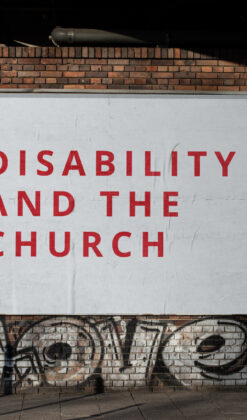
I just finished James Atwood’s book America and Its Guns: A Theological Exposeand I’m sitting here stunned. The statistics, the stories, the indifference, the political power plays in the face of innocent deaths, the role of money in the whole debate—even when lives are at stake. I know this is a messy topic and it defies simple answers. But this book has certainly blown the doors off my thinking on it.
Let me start by saying, as I often do, that I own guns. I hunt and fish and listen to country music and all that business, but I also love people more than I love my guns. Like many things that are morally neutral yet capable of becoming an idol, I like my guns but I don’t love my guns. I enjoy hunting and shooting, but gun rights are not my raison d’etre—my reason for existence. And if stricter gun laws would save more lives—even 1 life—then I’d eagerly vote for more laws. People are more important than guns. And last time I checked, Jesus believes that our freedom should be used to help people not hurt them.
Atwood’s book contains a lot of statistics. I haven’t triple checked them all to see if they are legit (he does provide ample evidence). But even if they’re marginally close to the truth, they’re scary enough to take notice.
- Every year in America, 30,00 people are killed by guns.
- Among the 30,000 people killed every year, about ½ are suicides, 10,000 are homicides, and 500 are “accidental deaths”—children exploring daddy’s loaded Glock and such (p. 129)
- Over 3,200 children are killed every year by a gun (p. 127)
- Nearly 1.7 million kids under the age of 18 live in a home where firearms are both loaded and unlocked (p. 110).
- Children in America are 12 times more likely to die from a gun than the next 25 industrialized nations combined (p. 5)
- While 10,000 people are murdered by a gun every year in America, the next highest gun-murder rate occurs in Canada (200), Germany (194), Spain (60), England and Wales (39), Australia (35), and Finland (17) (p. 6).
Let’s pause and linger on that last point for a second. I’ve often heard (and might have even said) that criminals don’t buy guns legally. It’s the good guys not bad guys who would be without a gun if we had stricter gun laws. If we tighten our gun laws, the criminals will simply get them some other way.
If this were true, then why don’t we see many more gun-related murders (or deaths) in other countries? Why is America leading the way at nearly 10,000 gun-related murders and the next highest country is Canada at 200? If the bad guys can easily get guns illegally—and I suppose other countries have bad guys too—then why don’t bad guys in Canada, Germany, and Spain use guns (illegally) to kill people?
Let’s get back to the statistics:
- America owns more guns than any other nation. It possesses over 300 million privately owned guns, which is almost 1 for every man, woman, and child.
- There are currently 512 armed militias in the U.S., which is 3x higher than in 2009 (p. 50).
- More American citizens were killed with guns between 1979 and 1997 (651,697) than all the servicemen and women killed in battle since 1775 (650,858) (p. 52).
- In Texas, people with a concealed weapons permit were arrested for weapon-related offenses at a rate 81% higher than that of the general population aged 21 years and older (p. 66).
- In the year 2,000, gun violence cost the American people 100 billion dollars (p. 123).
- About 500,000 guns are stolen from homes, cars, gun shops, manufacturers, and the military every year (p. 156)
- Among all the developed countries, 86% of all murders occur in the United States (p. 160).
- 80% of the guns confiscated in violent, drug-cartel related crimes in Mexico come from the United States. Apparently, we’re exporting our gun-violence (p. 181).
- Women are 5 times more likely to be a victim of domestic homicide when her partner owns a gun; 1/3 of all murders of American women are committed by their intimate partners (p. 108)
These statistics are startling, especially if you’re a woman or a child. And yes, I’m well aware of Mark Twain’s instructive dictum: “There are lies, damned lies, and statistics.” We can’t base truth on statistics alone.
However, we also can’t base truth on anecdotal stories or personal opinions alone. Even if you think you’re safer by owning a gun, this doesn’t make you safer by owning a gun. Some say that guns actually save lives, or that your uncle Bob once shot a potential murderer and saved tons of lives. But this doesn’t capture the broad scope of what’s going on. Statistics aren’t inerrant and they can be misused. But in the words of my friend David Kinnaman, statistics are better than your personal guess and anecdotal stories.
Do guns actually saves lives? Of the 30,000 gun deaths a year (including 10,000 murders), how many “bad guys” are killed by a gun?
According to the FBI, there are only 150-200 justifiable homicides a year, and most of these are carried out by law-enforcement (p. 189). With over 10,000 gun-related murders per year, the 100 or so justifiable homicides per year doesn’t seem worth it.
Now, different people will promote different statistics. Apparently Dr. Gary Kleck, who’s rounded criticized by Atwood, says that guns save the lives of 2.5 million people every year. According to Kleck, this includes verbally telling a killer that you have a gun (54%), pointing a gun at a criminal (47%), or shooting a “warning shot” with a criminal present (22%) (pp. 100-101). This is where it gets super messy. Who do you believe? Which statistic is accurate? The tough thing about Kleck’s research is that he’s largely going on personal testimonies. Every single Joe and Frank and Billy Bob who said that his dag gum pistol done did scare away that no good criminal is taken at face value. But how de we measure this? How do we know that ifBilly Bob didn’t own a 12 gauge, the intruder would have killed his family? Can we take personal testimonies at face value? Because 12 million people have claimed to have seen a UFO and 1 million people say they’ve met a space alien. Asking people their opinion on a matter (“was it your gun that scared him away?”) is risky business. Even if Kleck’s research is accurate, the best thing we could do is keep a gun close at hand and load it with blanks.
One of the things that Atwood continues to point out is the ease by which people can purchase guns at gun shows. “Felons, domestic abusers, terrorists, youth, and persons with adjudicated mental illness can go to a gun show and buy a gun from unlicensed sellers with no questions asked” (p. 12). And this does concern me. I’m not ready to say that American citizens can’t own guns, and neither is Atwood. He’s an avid hunter and doesn’t want to strip America of all its guns. He’s only arguing for stricter gun laws that help keep guns out of the hands of people who shouldn’t own them. And unless his statistics are all out of whack, this makes good sense to me.
I do have a few critiques of Atwood’s book that go beyond mere typos (which were plentiful; see pp. 34, 45, 136, 174). Most of my critiques have to do with Twain’s thoughts on statistics. As I said, I think there’s a valid place for statistics; we need to consult them. But we also need to recognize that statistics can be used to support one’s agenda. Atwood would often cite a statistic and then build a “see, look at that!” kind of argument. But I need more. Statistics, while helpful, need to be put on the stand and asked a thousand questions.
For instance, 15,000 of America’s gun deaths are suicide. This immediately raises many questions in my mind. Would they have committed suicide without a gun? How do we know? Do other countries have non-gun-related suicides? How many people committed suicide without a gun when they could have used a gun?
I’m also still wondering about the whole “guns save lives” pushback and I’m not convinced that Atwood has proven that guns don’t save lives. (It’s a moot point, of course, when we look at this question through a Christian ethic of nonviolence.) Atwood kept poking fun at the statement “guns save lives” throughout the book but only took 3 pages to address it head on (pp. 99-102). Within those 3 pages, he didn’t really prove that possession of a firearm, saying you have a firearm, or shooting a firearm in the arm has not been a successful way to scare off an attacker. Personally, I need to look deeper into Kleck’s research and his (many) critics to see what I think.
At the end of the day, however, I was deeply compelling by Atwood’s study. I’m not sure how anyone would argue otherwise, and I’m genuinely interested to hear what I’m missing. America possess more guns (300 million) than every other nation by far. And America consistently has the most gun-related deaths and murders than every other nation by far. I guess I need to see a compelling argument that shows how these two startling statistics are not related.











